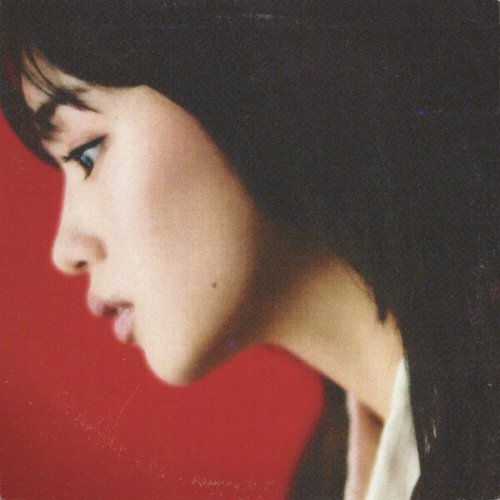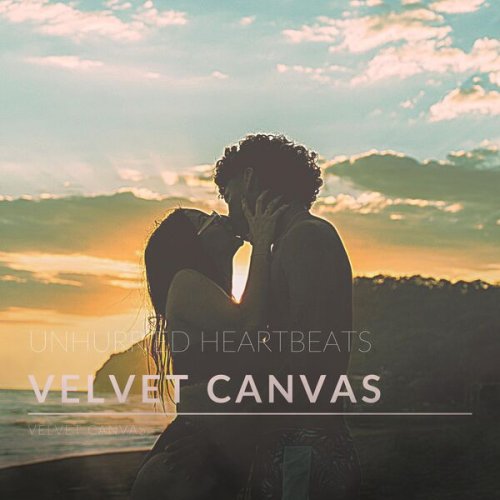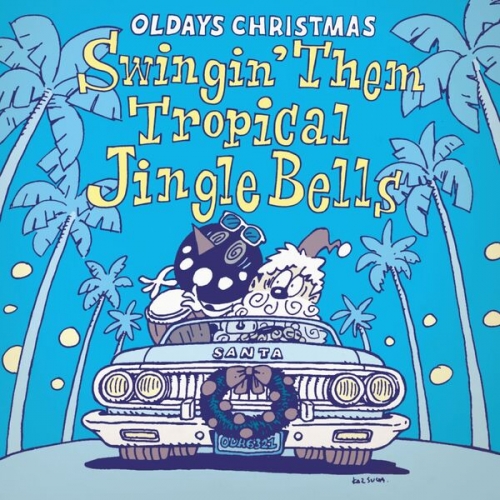Camerata Köln - Cannabich: Flute Quintets Op. 7 Nos. 3-6 (1998)
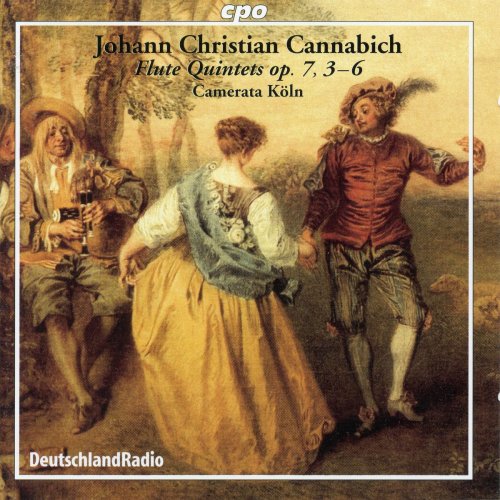
Artist: Camerata Köln
Title: Cannabich: Flute Quintets Op. 7 Nos. 3-6
Year Of Release: 1998
Label: CPO
Genre: Classical
Quality: FLAC (tracks)
Total Time: 58:42 min
Total Size: 283 MB
WebSite: Album Preview
Tracklist:Title: Cannabich: Flute Quintets Op. 7 Nos. 3-6
Year Of Release: 1998
Label: CPO
Genre: Classical
Quality: FLAC (tracks)
Total Time: 58:42 min
Total Size: 283 MB
WebSite: Album Preview
01. Flute Quintet in D Major, Op. 7 No. 5: I. Andantino
02. Flute Quintet in D Major, Op. 7 No. 5: II. Allegro vivace
03. Flute Quintet in D Major, Op. 7 No. 5: III. Minuettos I & II - Gratioso
04. Flute Quintet in E Minor, Op. 7 No. 3: I. Tempo giusto
05. Flute Quintet in E Minor, Op. 7 No. 3: II. Andantino afectuoso
06. Flute Quintet in E Minor, Op. 7 No. 3: III. Non tanto allegro
07. Flute Quintet in G Major, Op. 7 No. 4: I. Allegro non molto
08. Flute Quintet in G Major, Op. 7 No. 4: II. Andante un poco di moto
09. Flute Quintet in G Major, Op. 7 No. 4: III. Tempo di minuetto
10. Flute Quintet in G Major, Op. 7 No. 6: I. Non tanto allegro
11. Flute Quintet in G Major, Op. 7 No. 6: II. Andantino
12. Flute Quintet in G Major, Op. 7 No. 6: IV. Non tanto allegro
The Camerata Köln is a Cologne-based chamber ensemble devoted largely to early music, with a special focus on woodwind compositions. The group's repertory includes concertos, quartets, quintets, sonatas, and other works mainly from the post-Renaissance era and reaching into the Classical period. The group concertizes regularly in Germany and most parts of Europe and has made numerous tours of the Americas and other parts of the globe. By 2006, it had made well over 50 recordings.
The Camerata Köln was founded in 1979 by young musicians devoted to Baroque and other early music, performed in accordance with strict historical practices. The number of players in the group varies, of course, depending on the requirements of the piece, and the ensemble often uses guest performers and makes frequent appearances with chamber orchestras at home and abroad. In 2006, the seven regular members of Camerata Köln were: Michael Schneider, who plays the recorder and transverse flute, Karl Kaiser (transverse flute), Sabine Lier (violin), Ingeborg Scheerer (violin and viola), Rainer Zipperling (cello and viola da gamba), Juliane Borsodi (cello and viola da gamba), and Sabine Bauer (keyboard).
The group began performing with general success throughout Germany and Europe, and by the end of the 1980s had become a major voice in the realm of early music. Its July 23, 1989, concert at New York's Frick Collection Garden Court drew a rave review from The New York Times, even if the critic (Bernard Holland) took issue with some of the instruments chosen for the concert.
The Camerata Köln's 1996 concerts of J.S. Bach's complete Brandenburg Concertos at Milan's Teatro alla Scala and at the Amsterdam Concertgebouw received enthusiastic response from critics and audiences alike. By this time the group had scored numerous successes in the recording studio, as well. Its more notable releases include an album of selections from Telemann's Essercizii Musici on RCA (1996) and a CD entitled Handel: Sonatas for Woodwind Instruments on Deutsche Harmonia Mundi (1996).
Later recordings include a pair of releases on the CPO label: Telemann: Six Trios 1718 and a W.F. Bach collection of sonatas and trios. The Camerata Köln's appearance at the March 2003 Miami Bach Festival featured highly praised performances of works by J.S. Bach and Telemann and was followed up by a successful tour of Canada and the U.S. beginning in March of the following year.
The Camerata Köln was founded in 1979 by young musicians devoted to Baroque and other early music, performed in accordance with strict historical practices. The number of players in the group varies, of course, depending on the requirements of the piece, and the ensemble often uses guest performers and makes frequent appearances with chamber orchestras at home and abroad. In 2006, the seven regular members of Camerata Köln were: Michael Schneider, who plays the recorder and transverse flute, Karl Kaiser (transverse flute), Sabine Lier (violin), Ingeborg Scheerer (violin and viola), Rainer Zipperling (cello and viola da gamba), Juliane Borsodi (cello and viola da gamba), and Sabine Bauer (keyboard).
The group began performing with general success throughout Germany and Europe, and by the end of the 1980s had become a major voice in the realm of early music. Its July 23, 1989, concert at New York's Frick Collection Garden Court drew a rave review from The New York Times, even if the critic (Bernard Holland) took issue with some of the instruments chosen for the concert.
The Camerata Köln's 1996 concerts of J.S. Bach's complete Brandenburg Concertos at Milan's Teatro alla Scala and at the Amsterdam Concertgebouw received enthusiastic response from critics and audiences alike. By this time the group had scored numerous successes in the recording studio, as well. Its more notable releases include an album of selections from Telemann's Essercizii Musici on RCA (1996) and a CD entitled Handel: Sonatas for Woodwind Instruments on Deutsche Harmonia Mundi (1996).
Later recordings include a pair of releases on the CPO label: Telemann: Six Trios 1718 and a W.F. Bach collection of sonatas and trios. The Camerata Köln's appearance at the March 2003 Miami Bach Festival featured highly praised performances of works by J.S. Bach and Telemann and was followed up by a successful tour of Canada and the U.S. beginning in March of the following year.
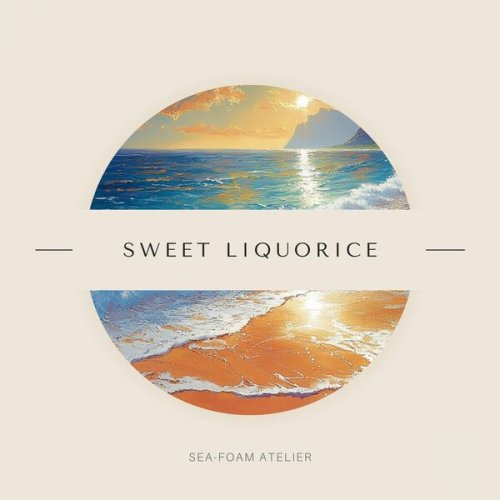
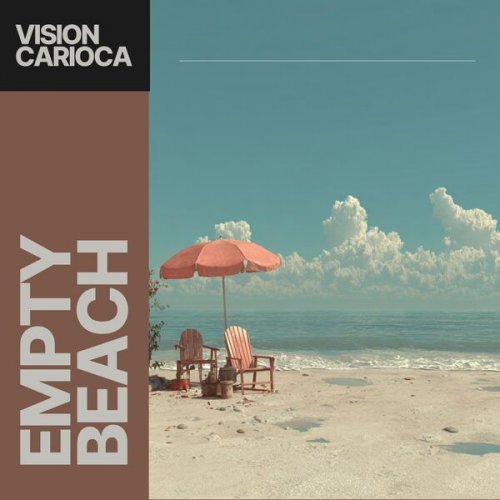
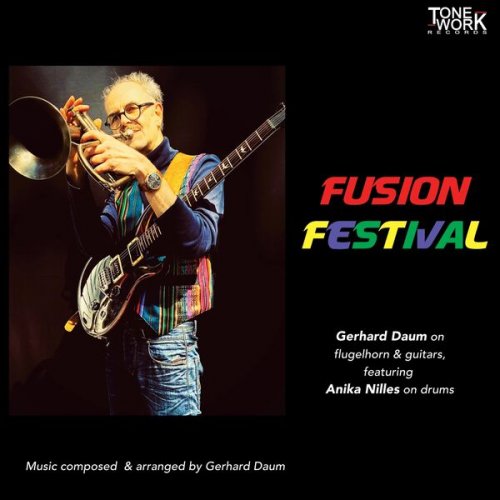
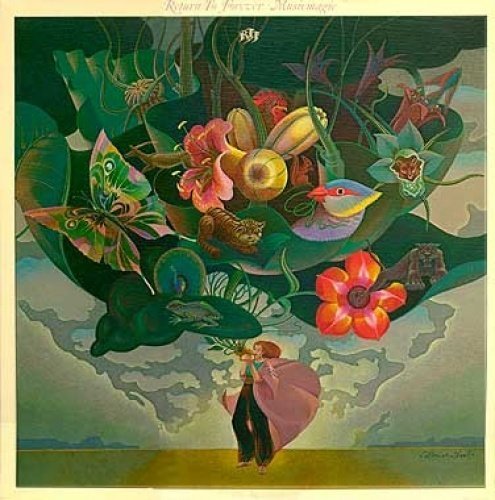
![Dominique Fils-Aimé - My World Is The Sun (2026) [Hi-Res] Dominique Fils-Aimé - My World Is The Sun (2026) [Hi-Res]](https://www.dibpic.com/uploads/posts/2026-02/1771404623_folder.jpg)
